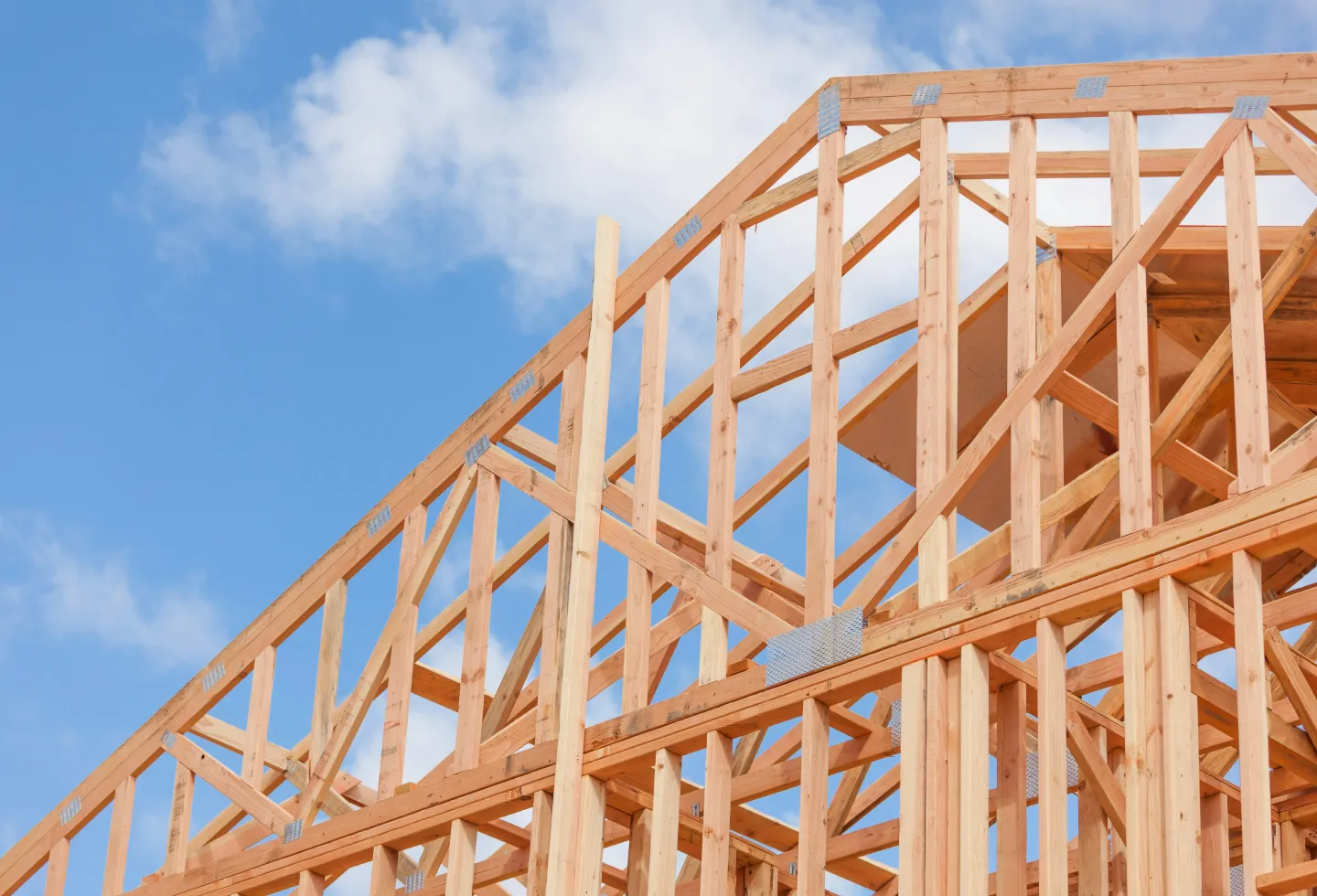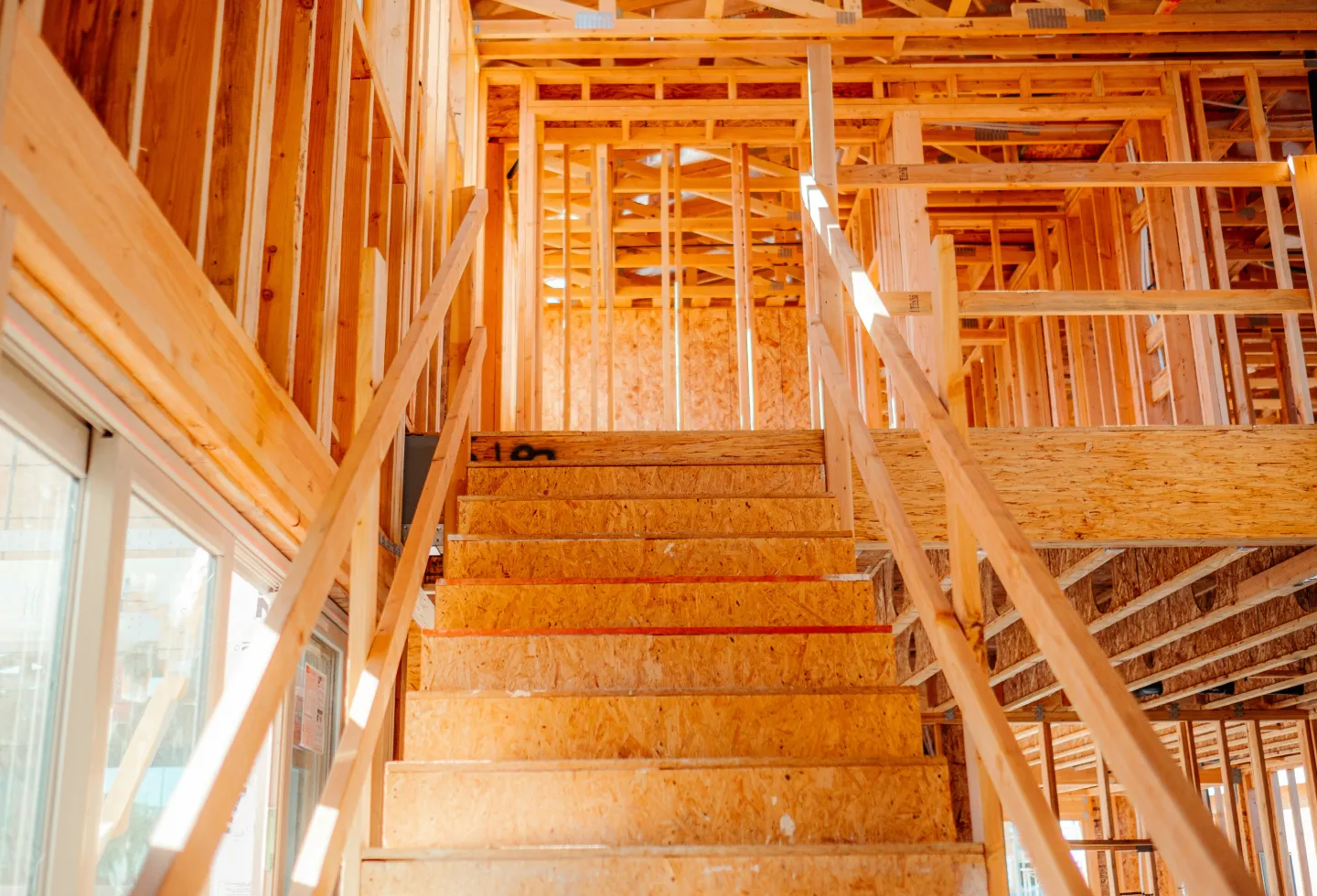If you want to build your dream home from the ground up, you can finance it by getting a home building loan, also called a construction loan. Whether you’re breaking ground on your first house or creating the forever home you’ve always wanted, understanding how these loans work can help you turn your plans into reality without unnecessary stress.
What is a home building loan?
A home building loan is a type of short-term financing that helps cover the costs of constructing a new home. Unlike a traditional mortgage loan, which gives you a lump sum to buy a house that’s already built, a building loan releases funds in stages as your home construction progresses.
This way, you (and your lender) know the money is being used to cover real, ongoing work — like laying the foundation, framing, or finishing the interior. However, these loans don’t usually cover design costs, architect plans, interior design, or furniture — so it’s important to consider the costs of that part of the process, too.
There are five common types of home building loans, explained in detail below.
Home building loans: Your options
Construction-only loan
A construction-only loan is just as it sounds — a loan specifically for the building phase of your home project. They’re short-term loans, and once the build is complete, you’ll need to secure a mortgage. This option can be appealing if you want extra time to shop around and secure lower interest rates and more favorable terms.
The downside, however, is that buyers who choose this option will incur two sets of closing costs.
Construction-to-permanent loan
A construction-to-permanent loan is sometimes referred to as a one-time close (OTC) construction loan. It means that when the construction phase of your home is finished, your loan will automatically convert into a 15 or 30-year permanent mortgage.
Because of that, a construction-to-permanent loan is often more convenient than a construction-only loan—you only have to go through the closing process once.

Owner-builder loan
Some lenders offer owner-builder loans, also known as self-build loans, which enable you to act as your own general contractor on the home. These can be structured as either construction-to-permanent or construction-only loans. However, most lenders require you to be a licensed builder, since you’ll be responsible for pulling permits and managing subcontractors.
Renovation loan
If you’d rather buy a fixer-upper than build from scratch, several loan options let you bundle both the purchase price and renovation costs into a single loan.
You can explore:
- Fannie Mae HomeStyle Renovation Loan
- Freddie Mac CHOICERenovation Loan
- FHA 203(k) loan
- VA renovation loan
- USDA renovation loan
Bonus tool: Home equity
If you have enough equity in an existing property—whether it’s your primary residence, a second home, or an investment—you may be able to use it to help finance the cost of building a new home.
- Home equity loan: Provides a lump sum upfront with a fixed interest rate and predictable monthly payments.
- Home equity line of credit: Works more like a credit card, giving you flexible access to funds as you need them—ideal if construction costs vary or come in stages.
- Home equity investment: Lets you access cash from your home’s value in exchange for a share of your future home appreciation, with no monthly payments over a 30-year term.
Requirements for home building loans
Requirements can vary by lender and are often stricter than for a traditional mortgage, since the home — the collateral for the loan — hasn’t been built yet.
Typical lender criteria for a construction loan include:
- Strong financial health: You’ll want to prove stable income, a debt-to-income ratio of less than 45%, and good credit, though some FHA construction loans accept credit scores of 620.
- Down payment: Prepare to put down a down payment of 20% to 25% of the home's cost.
- A qualified builder: Before going to a lender, you’ll need to partner with a licensed contractor who will complete your home build. Many builders have banks they regularly work with that they can recommend to you.
- House plans: You’ll also need to show the bank your construction plans. These house plans should include estimated project timelines, costs, materials to be used, and more.
- Home appraisal: Expect an appraisal of the home’s value, even if it’s not built yet. The appraiser will review your plans, assess your land, review recently sold homes in the area, and ultimately make sure that the house you’re planning on building will be worth the value of the loan.
Frequently asked questions
Can you get a home building loan with bad credit?
You’re more likely to get approved for a home building loan with good credit, but some programs, such as the FHA One-Time Close Loan, accept borrowers with credit scores as low as 620. Other alternatives, like the home equity investment, only require a credit score above 500. If you have poor credit, it’s best to shop around and explore options.
Do I need to own the land before applying?
No, you don’t have to own the land before applying for a home building loan. You can combine purchasing land and the construction loan into one. If you already own the land outright, you can use a portion of your land’s equity towards your down payment.
What happens if construction runs over budget or past the timeline?
Lenders typically set aside a portion of your loan in a contingency fund to cover the cost of any overages. Depending on the lender, this fund can contain 5% to 10% of your loan amount. If your construction runs over budget or past the timeline, the lender can use your contingency fund to cover this difference.

Final thoughts
Building your dream home is an exciting adventure, and the right financing can make the process smoother and less stressful. Home building loans—whether construction-only, construction-to-permanent, or owner-builder options—give you the flexibility to fund your project while keeping your budget on track.
No income? No problem. Get a home equity solution that works for more people.
Prequalify in 60 seconds with no need for perfect credit.
Show me my offer
Frequently asked questions
.png)
Thank you for subscribing!
.webp)















